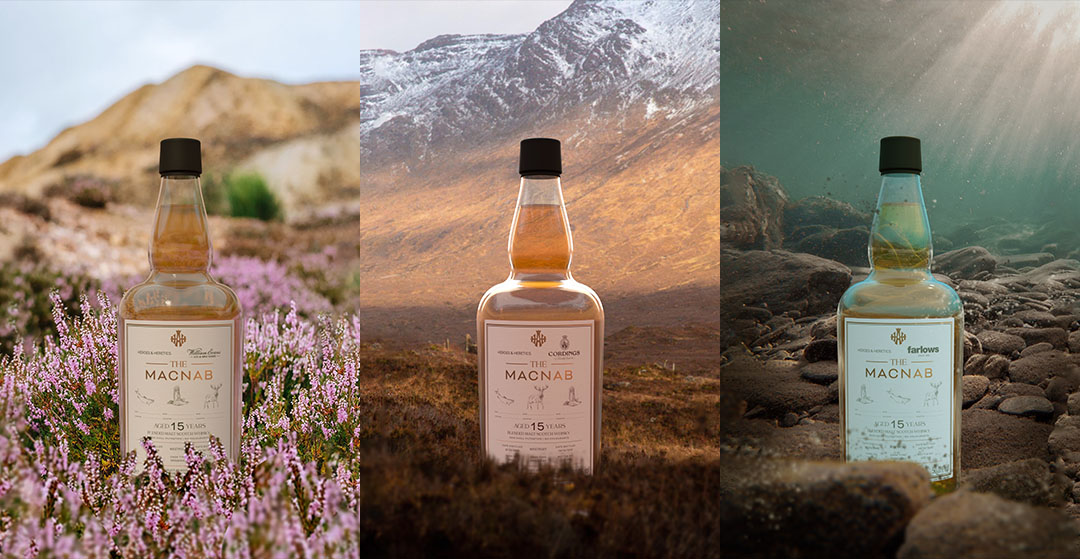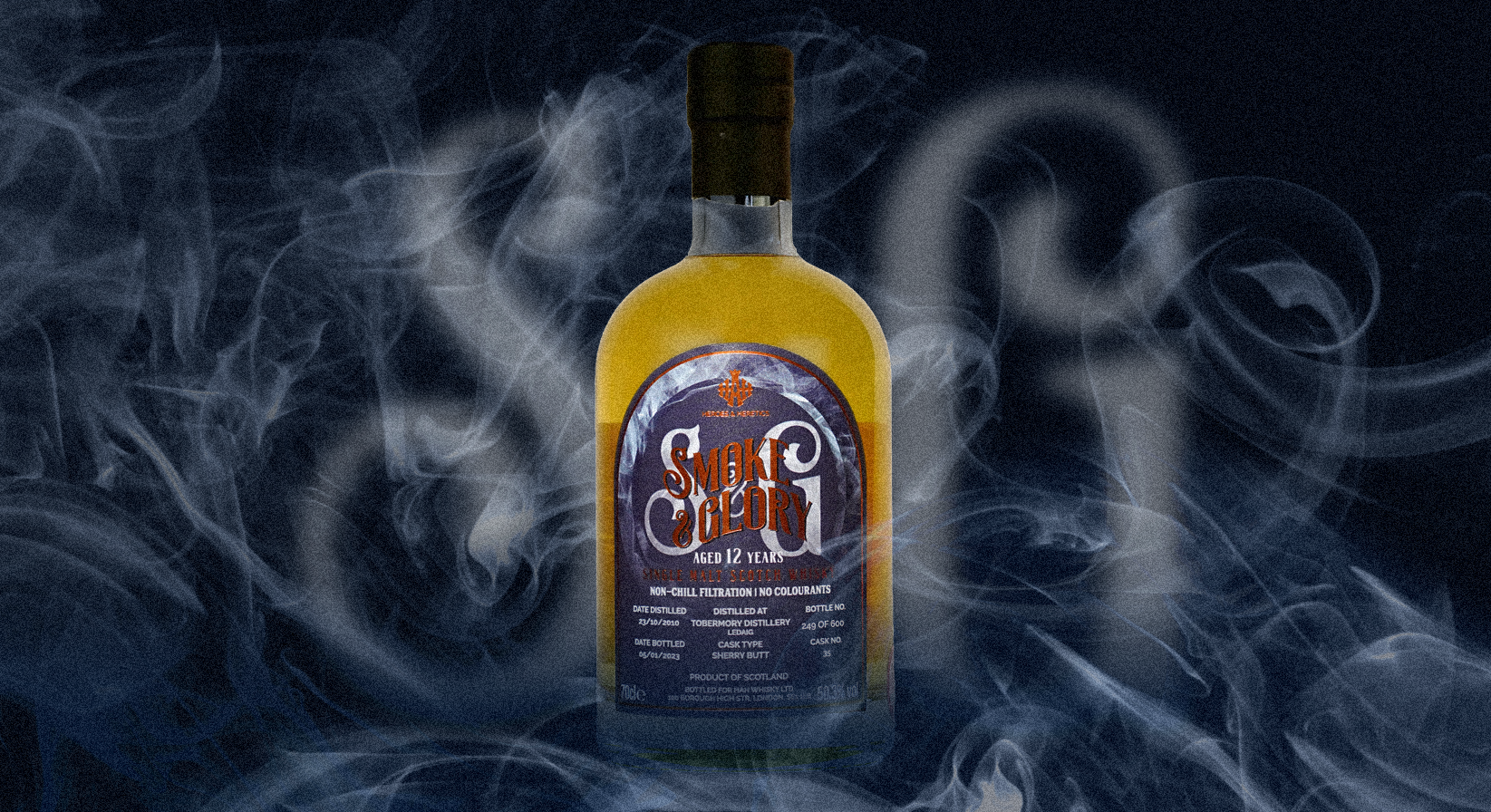A few years ago, I made the epic journey to the infamous Whisky a Go Go, also known simply as The Whisky, in West Hollywood, California. (It is located at 8901 Sunset Boulevard on the Sunset Strip).
The 1960’s icon that launched the Doors (amongst other bands, Iggy And The Stooges, Alice Cooper (who recorded a live album there in 1969), No Doubt, System of a Down, The Byrds, The Germs, Buffalo Springfield, Steppenwolf, Van Halen, Johnny Rivers, X, Led Zeppelin, KISS, Guns N’ Roses, Death, AC/DC, Linkin Park and Mötley Crüe) was mixing Whisky and Music decades before the thoughts of whisky pairing.
There is no doubt that Whisky (Whiskey), is a very versatile drink. It can be enjoyed any number of ways (clean, neat, over ice, with a mixer, etc). We know it is a key ingredient in many cocktails and increasingly it can be paired beautifully with a large number of foods and other beverages.
So, the question is whether music can be enjoyed with a particular whisky. It is a far less tangible concept than pairing whisky to food and beverages, not to mention a more subjective pursuit. After all, people’s tastes and preferences in music cover a far more diverse (and sensitive) spectrum, and it’s difficult to assign objectivity to the applicability or success of any match.
Let’s compare a 10-year-old Talisker is lifted or enhanced by drinking it to Beethoven’s Third Symphony or is it any better than it would if paired with ‘Uprising’ by Muse? Does a malt with a long finish work well with a song that has a long ending?
Having said that, I do like the idea of bringing all of the senses into whisky appreciation – there are in reality 37 or more senses in the human body – we tend to focus on the top 5. The enjoyment of whisky already exercises vision, smell, taste, and touch. We use vision to admire the whisky’s colour; we use smell to take in the spirit’s nose/bouquet; we use taste to enjoy the flavour; and our tongue, cheeks, and gums exercise touch or feel as they’re impacted by the whisky’s texture and heat.
The problem arises from pairing whisky and music lacks as it lacks objectivity – what is the measurement and how do we account for personal musical taste? It is thus it is not a team game, it is an individual experience…it’s a sound so melodious it might as well be considered a kind of music: The clink of ice cubes against a glass tumbler, the splash of warm amber liquid, the crinkle as the ice begins to melt.
More than any other instance of alcohol in songs, whiskey—be it scotch, bourbon or rye—is the amber ambrosia from the gods for those cataloguing the experience of love in all its agony and ecstasy. There’s something storied about whiskey, which is why so many songwriters from nearly every genre continue turning to it to help express their joy and pain.
For most people, we have a favourite whisky and we have a favourite artist, and we’re happy to enjoy both at the same time. But does that make it a pairing or a match? Try these tunes and imagine/put a whiskey/whisky against each one…
Rehab ft. Hank Williams Jr., ‘Bartender Song (Sittin’ at a Bar)’. The customer-bartender relationship is a special one. That’s the basis for Rehab’s 2008 hit “Bartender Song (Sittin’ at a Bar).” “Bartender, I really did it this time” – that opening line sets it all up perfectly. The man in the song “broke his parole to have a good time” so he’s going to drink until the cops come for him. The remix with Hank Williams Jr. makes all the boozy trouble just a little sadder.
Trampled by Turtles, ‘Whiskey’. Whiskey has long been romanticized as the aide for one’s troubles. Trampled by Turtles wrote its love letter to the spirit simply and beautifully. “I ain’t got a dime in my pocket,” Dave Simonett sings, “I just stepped on my last cigarette/But there’s a bar downtown that’ll give me credit.” Tabs are so clutch. With the booziest lyric, “Whiskey, won’t you come and take my troubles/’Cause I can’t seem to do it on my own.”
Drive-by Truckers, ‘Women Without Whiskey’. Within southern rock’s annals, it’s long been a toss-up about who can write a more despondent song, Patterson Hood or Mike Cooley. Off the band’s 2001 album Southern Rock Opera, “Women Without Whiskey” features Cooley’s honest vocals contemplating what a life without whiskey looks like, even while he knows maintaining his current relationship with the bottle will surely kill him. Indeed, it’s started to already. The central struggle to live without whiskey—to handle women without a glass first—arises viscerally in the song’s guitar riff, which itself feels like a question.
Billie Holiday, ‘Riffin the Scotch’. A short song that’s mostly instrumental, “Riffin the Scotch” only contains one verse, but it’s a powerful one in the hands of Holiday’s lamenting, ice-against-glass vocals. Although she doesn’t mention drinking whiskey once in the song, the title says it all. She’s “Riffin the Scotch,” bemoaning leaving one deleterious relationship only to find herself in another, and in that way playing on the idea of “riff” in popular music, which repeats a short, instrumental phrase.
Buddy Guy and Junior Wells, ‘Bad Bad Whiskey’. Amos Milburn’s song “Bad Bad Whiskey” gets a Chicago blues reimagining in the hands of Buddy Guy and Junior Wells, whose guitar and harmonica-driven performance hit upon the pain resonating throughout the song. Thanks to the singer’s affinity to whiskey and his inability to put the bottle down, he can’t keep up any kind of relationship.
Punch Brothers, ‘Rye Whiskey’. Rye whiskey has a place of repute in folk and country music thanks to Woody Guthrie and Tex Ritter. And it’s never done anybody a lick of good. The lone fiddle that begins the Punch Brothers’ take on the liquor—just a single note stretched across the string before a banjo joins the conversation—embodies the giddy feeling that a glass or two of whiskey typically provides. But there’s always a tipping point.
Chris Thile, ‘If the Sea Was Whiskey’. Thile’s song updates the down and out “Diving Duck Blues” written by Sleepy John Estes and famously covered by Taj Mahal. Rather than imagining a whiskey river into which he would “swim to the bottom” if he were a diving duck, Thile changes the lyrics to a sea. That shift magnifies the extent to which he would undo himself to sink down into whiskey’s oblivion.
Gillian Welch, ‘Whiskey Girl’. Where the vast majority of whiskey songs are written from a first-person perspective about some kind of heartbreak or struggle with the bottle, Gillian Welch’s song “Whiskey Girl” tells a different story. Following the lives of “nowhere man and whiskey girl,” the song is a quiet, thoughtful meditation on how these two figures serve as companion pieces to one another. Being a whiskey girl, in this instance, isn’t a great thing if your partner is nowhere man. They are characters each lost in their own way.
Willie Nelson, ‘Whiskey River’. Perhaps one of Willie Nelson’s most famous recorded songs, “Whiskey River” was written by Johnny Bush and feels like a prayer, a plea of sorts, to the amber liquor. Where Timberlake couldn’t find solace no matter what he drank, and Price admitted she had too much, Nelson gets it just right. He knows exactly what he needs to get over his broken heart. He sings, “Whiskey River, take my mind / Don’t let her memory torture me / Whiskey River, don’t run dry / You’re all I got, take care of me,” he sings on the chorus, which comprises the vast majority of the song’s lyrics.
To save you searching for and wading through the hundreds of tunes these artists have put together, Whisky & Wisdom has compiled a short Spotify, https://open.spotify.com/playlist/10z3ZHe3iKiPx1xIazoYQg



You must be logged in to post a comment.